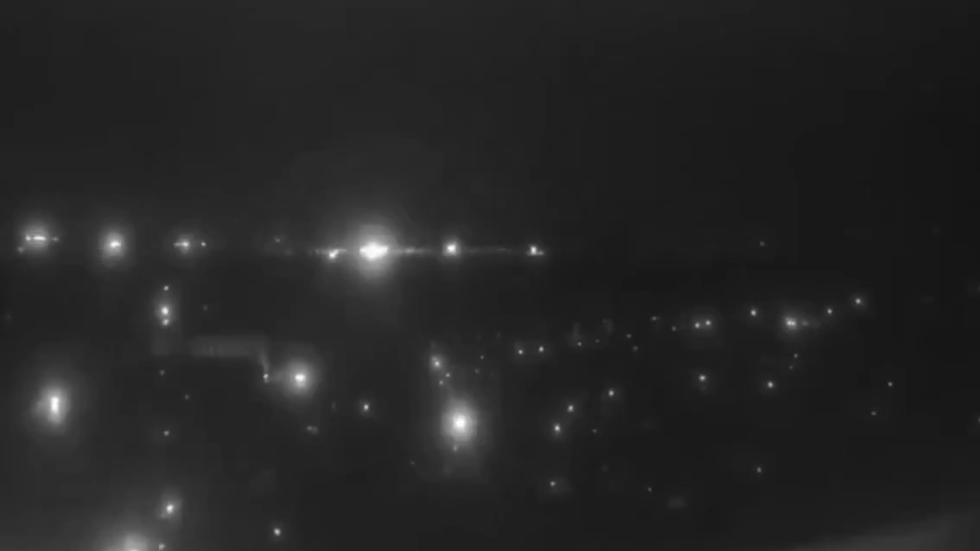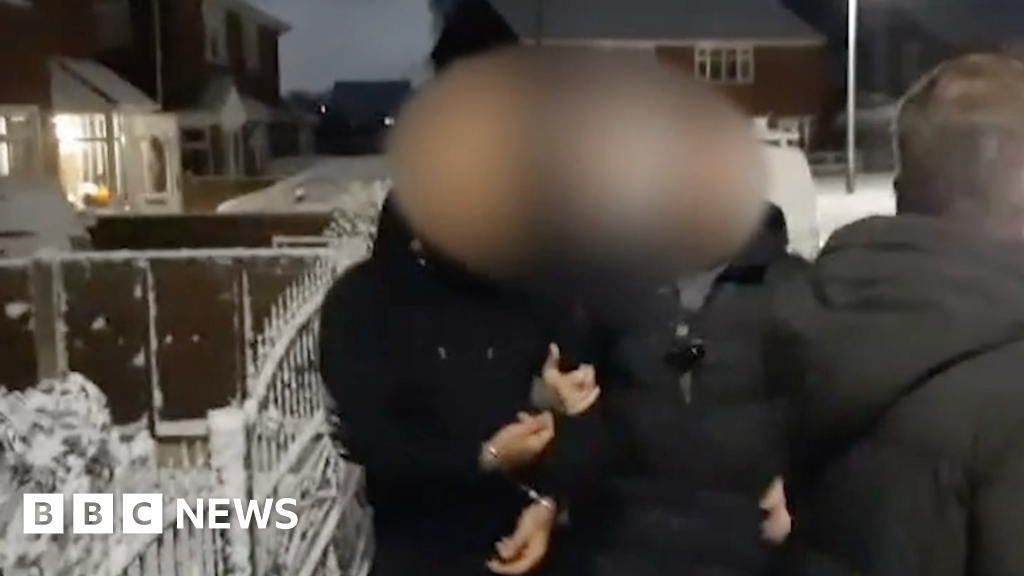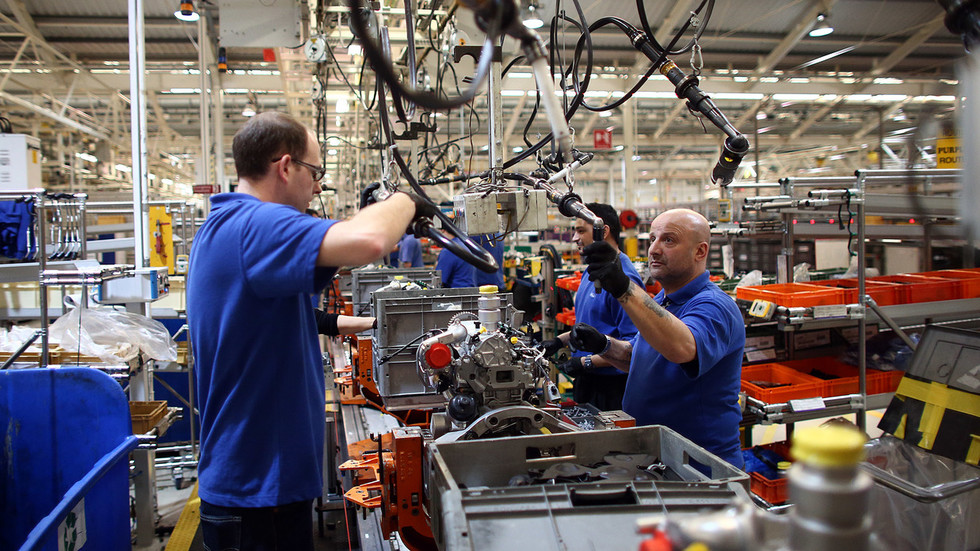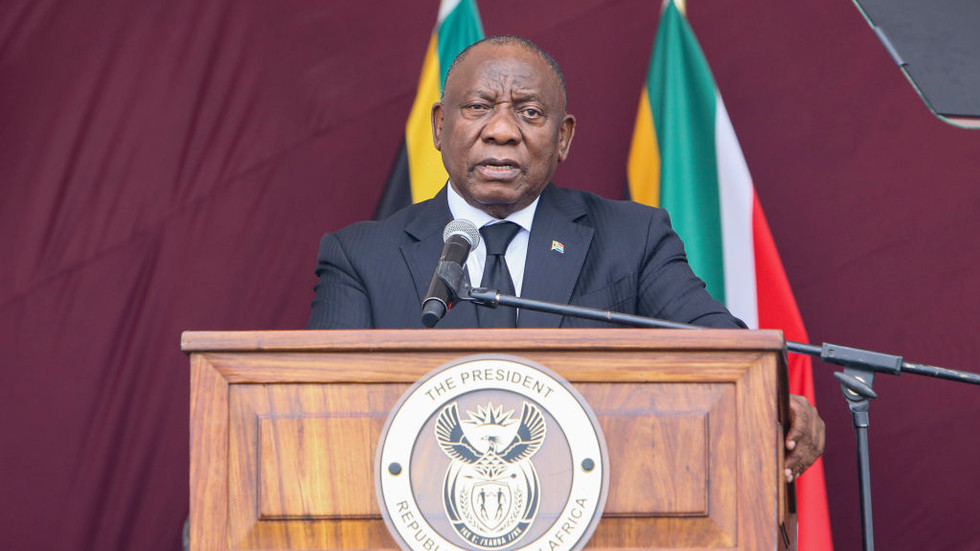President Vladimir Putin has rejected as "nonsense" claims that Moscow would want to attack NATO and denied that Russia has any "imperial ambitions."
However, he accused western countries, including Germany, of prolonging the conflict in Ukraine by supplying arms to Kyiv and raised the prospect of an "asymmetrical" response.
On German domestic politics, Putin denied any "systematic links" to the far-right Alternative for Germany (AfD) party, in which he said he saw "no signs of neo-Nazism," but said the Kremlin was prepared to work with "anyone willing to cooperate with Russia."
Putin was speaking to representatives of global news agencies inside the Lakhta Center skyscraper on the sidelines of the 27th annual St. Petersburg International Economic Forum (SPIEF). It was Putin's first such meeting with international media since Russia's full-scale invasion of Ukraine in February 2022.
In addition to what he calls the "special military operation" in Ukraine, Putin also fielded questions on Russia-US relations ahead of November's presidential election, criticizing Donald Trump's recent conviction and confirming that the "relevant agencies are in contact" over the detained US journalist Evan Gershkovich.
He also stressed the importance of working with an emerging Chinese economy, said Russia was prepared to play a role in achieving a solution to the conflict in the Middle East and that the Kremlin would be looking to build relations with the Taliban regime in Afghanistan.
Putin's Russia: Back in the USSR?
Putin: No 'imperial ambitions' or desire to attack NATO
Putin emphatically rejected suggestions that Moscow had designs on former territories of the Soviet Union or the Russian Empire and insisted that Russia doesn't want to attack NATO.
"Don't form an image of Russia as an enemy," he told reporters. "You have made up that Russia wants to attack NATO. Have you completely lost your mind? Who made that up? It's rubbish. It's absolute nonsense."
He said that the idea that Russia had "imperial ambitions" was also "nonsense," telling the AFP news agency: "There is no reason to look for any imperial ambitions from us because there are none."
In September 2022, Moscow illegally annexed four Ukrainian regions partly occupied by Russian troops, as it did with Crimea, occupied since 2014. Numerous senior Russian officials, including Putin, have pointed out on several occasions that these regions were part of the Soviet Union and formerly the Russian Empire.
Russia also continues to occupy two separatist regions of Georgia, Russian troops remain stationed in the breakaway Moldovan region of Transnistria, and Moscow has been accused by Estonia and Lithuania of interference in the Baltic region — all former territories of the Soviet Union.
Russian disinformation network targets EU elections
Putin threatens 'asymmetric' response to western backing for Ukraine
With Russia's full-scale invasion of Ukraine now into its third year, Putin claimed that Russian losses were "several times less" than those of Ukraine, stating that, "according to our calculations, the Ukrainian army loses about 50,000 people a month."
In February this year, two years on from the full-scale invasion, Ukrainian President Volodymyr Zelenskyy said 31,000 Ukrainian soldiers had been killed. Western intelligence officials believe the figure to be higher. Meanwhile, Ukraine claims to have killed, wounded or captured over 500,000 Russian troops. US officials estimates that figure to be around 320,000.
Putin criticized western countries for continuing to supply ever more sophisticated weapons to Kyiv, saying: "If you want to stop the hostilities in Ukraine, stop supplying weapons."
After the United States and Germany last week joined the United Kingdom and France in allowing Ukraine to use their long-range missiles to strike targets on Russian soil, Putin raised the specter of what he termed an "asymmetrical" response.
"If someone thinks it possible to send such weapons to a war zone to strike our territory and create problems for us, then why do we not have the right to send our weapons of the same class to regions of the world where strikes can be made on sensitive facilities of [these] countries?" he asked. "The response can be asymmetric. We will think about that."
His comments came as US officials said on Wednesday that Washington has been tracking Russian warships and aircraft traveling to the Caribbean for upcoming military exercises.
The exercise, which will be monitored by the US Navy, will involve a "handful" of Russian ships and support vessels, the two officials said, calling the Russian presence notable but "not concerning."
The ships are expected to make possible stops in Venezuela and Cuba in a move which will recall the Cuban Missile Crisis of 1962, which almost saw the US and the USSR come to nuclear blows.
"They keep trying to accuse us of waving some kind of nuclear stick," said Putin when asked in St. Petersburg about Russia's preparedness to use nuclear weapons today. "Did I raise the possibility of using nuclear weapons? It was you who did that. You bring me out on this topic and then say that I am waving a nuclear stick."
Nevertheless, he insisted: "We have a nuclear doctrine. If someone's actions threaten our sovereignty and territorial integrity, we consider it possible for us to use all means at our disposal. This cannot be taken lightly. It must be handled professionally."
Germany's AfD classified as potential threat to democracy
Putin criticizes Germany, defends AfD
Putin singled out Germany for specific criticism for providing weapons for Ukraine.
"When German tanks first appeared on Ukrainian soil, it already produced a moral, ethical shock in Russia, because relations towards [Germany] in Russian society had always been very good," he said. "Now, when they say that more [German] missiles will appear that will strike targets on Russian territory, this, of course, is ultimately destroying Russo-German relations."
While Berlin gave Kyiv permission to use German-supplied missiles to strike targets in Russia in order to defend the city of Kharkiv, which lies just 20 kilometers (12 miles) from the Russian border, Chancellor Olaf Scholz is still refusing to send ultra-long-range Taurus missiles to Ukraine.
Asked about German domestic politics, Putin denied that Russia had any "systematic links" to the far-right Alternative for Germany (AfD) party, but said the Kremlin was prepared to work with "anyone willing to cooperate with Russia."
Despite being classified by Germany's Federal Office for the Protection of the Constitution (BfV) as a suspected far-right extremist organization, Putin insisted he saw "no signs of neo-Nazism" in the AfD.
"Any alternative viewpoint is seen as a stance against the state," he claimed, having himself banned most independent Russia media. "And then they're all labeled agents of the Kremlin."
Russia 'doesn't care' who wins US election
As for the upcoming US presidential election in November, Putin said he "doesn't care" who wins and that he "will work with any president the American people elect."
Asked about Donald Trump, who was last week found guilty of 34 counts of falsifying business records to avoid a potential sex scandal, Putin said the trial showed the US were "burning themselves from the inside, their state, their political system."
He did, however, confirm that "the relevant US and Russian agencies are in contact" over the detained US journalist Evan Gershkovich.
"I know that the United States administration is indeed making vigorous steps for his release, this is true," he said. "But such issues are not resolved through the media."
mf/jsi (AFP, Reuters, AP, dpa)

 5 months ago
17
5 months ago
17








